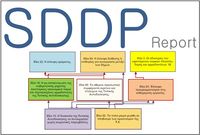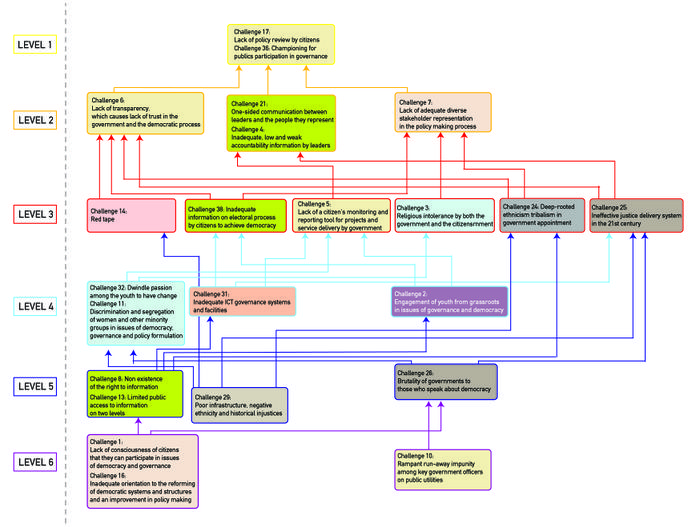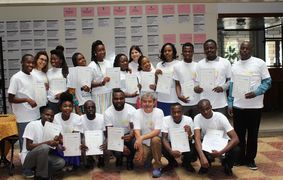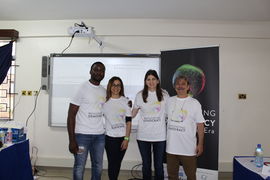SDDP Reinventing Democracy - Challenges (African Initiative)
|
Executive Summary
The SDDP Reinventing Democracy - Challenges (African Initiative) is part of the Reinventing Democracy in the Digital Era - African Co-Laboratory.
This paper reports the results of the second of a series of workshops organized by Future Worlds Center under the auspices of UNDEF. The dialogue was implemented in the context of the Reinventing Democracy in the Digital Era (UNDEF) project. The purpose of this project was to bring together young people from all around the world in an attempt to take apart and reconstruct the concept of democracy. The workshop was organized using the structured dialogic design process (SDDP) approach within the context of a rich web-based communication environment. This Co-Laboratory was organized using the Structured Democratic Dialogue Process (SDDP) approach within the context of a rich web-based communication environment. The process was supported by Cogniscope 3. The event was organized by African Initiative.
The Triggering Question (TQ) was
"What are key shortcomings of our current systems of governance that could be improved through technology?"
In response to the TQ, the 16 participants came up with 57 characteristics, which were categorized in 6 clusters. Following the voting process, 38 ideas received one or more votes and were structured to create the influence MAP shown below.
According to the participants of this workshop, appear to be the most influential were:
- Characteristic 1, Lack of possibility to vote in elections online.
- Characteristic 16, Lack of motivation to participate and take action.
- Characteristic 10, Lack of specific information and political education.
Gallery
Participants
| Name | Country |
|---|---|
| Abdulkarim Taraja | Kenya |
| Abel Mavura | Zimbabwe |
| Abiba Abdallah | Ghana |
| Apollo Murigi | Kenya |
| Appiah Evelyn Opoku | Ghana |
| Bill Graham Osei Akomea | Ghana |
| Daniel Ehagi | Kenya |
| Eleanor Opiyo | Kenya |
| Georgina Mabezere | Zambia |
| Gideon Ayodo | Kenya |
| James Gondwe | Malawi |
| Jedidah Millapo | Zambia |
| John Oyaro | Kenya |
| Melvis Lu-uh Kimbi | Cameroon |
| Paul Kasoma | Uganda |
| Rahab Wairimu | Kenya |



